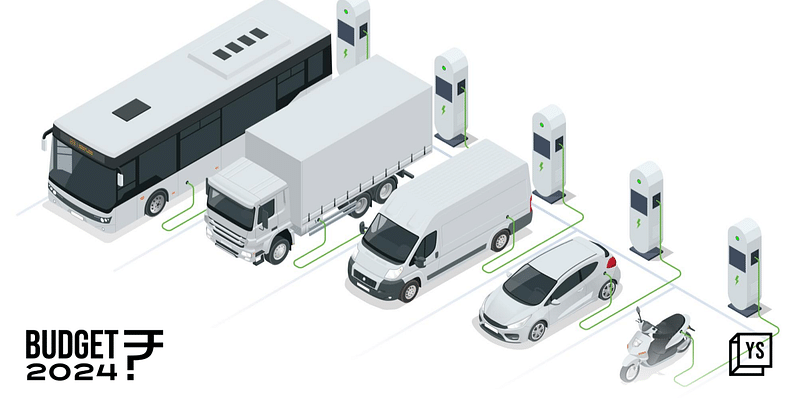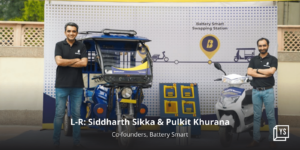
Budget 2024 finally met a big expectation of the electric vehicle (EV) ecosystem–support for charging infrastructure.
The government will expand and strengthen the e-vehicle ecosystem by supporting manufacturing and charging infrastructure, Finance Minister Nirmala Sitharaman said in her Budget speech on Thursday.
YourStory, quoting three sources higher up in the ministry, had exclusively reported a year ago that charging infrastructure was likely to be a huge focus for the government, especially as part of the FAME III norms.
The Budget also focused on public transportation, where it said that greater adoption of e-buses will be encouraged through a payment security mechanism that provides interest-free capital in case of defaults.
In 2023-24, the government spent Rs 4,807 crore as part of the FAME India scheme. For 2024-25, the government has allocated Rs 2,671 crore for FAME, which could change once a fresh Budget is presented following the Lok Sabha election.
FAME II was constituted in 2019 with a capital outlay of Rs 10,000 crore to be spent over three years.
The PM-eBus Sewa Scheme, launched in August 2023, aimed to deploy at least 10,000 electric buses via a public-private partnership. Under FAME II, electric buses got a subsidy of Rs 20,000 per kWh, capped at 40% of the vehicle cost or Rs 55 lakh, whichever is lower.
Sitharaman added that the government’s focus on the charging infrastructure will provide entrepreneurship opportunities for vendors on the supply and installation side, as well as for the youth with technical skills in manufacturing, installation, and maintenance.
“The Budget’s focus on strengthening the EV ecosystem, through support for charging infrastructure and promotion of electric buses, marks another significant step towards transitioning to a more sustainable EV-based transportation system,” said Sandiip Bhammer, Founder and co-managing partner at Green Frontier Capital.
“These initiatives reflect the government’s ongoing efforts to align with global sustainability goals while maintaining economic stability and continuity,” he added.
With the government’s previous incentives giving a boost to the sector, including the FAME Scheme, EV sales in India rose 50% to 1.53 million from a year ago over the last year, according to data released by the Ministry of Road Transport and Highway, via Vahan.
A lot of other asks from the Budget such as tax breaks for local manufacturing and duty reduction for imported fully-built vehicles, electronic components, and lithium-ion battery packs and cells, went unheeded.
Grants and innovation-focused schemes and incentives for different battery chemistries, particularly ones that do not depend extensively on imports, were other big expectations from startups working on innovative solutions.
Edited by Affirunisa Kankudti





![Read more about the article [Weekly funding roundup Feb 13-17] Venture capital inflow doubles; early-stage deals dominate](https://blog.digitalsevaa.com/wp-content/uploads/2022/11/funding-lead-image-1669386008401-300x150.jpg)




